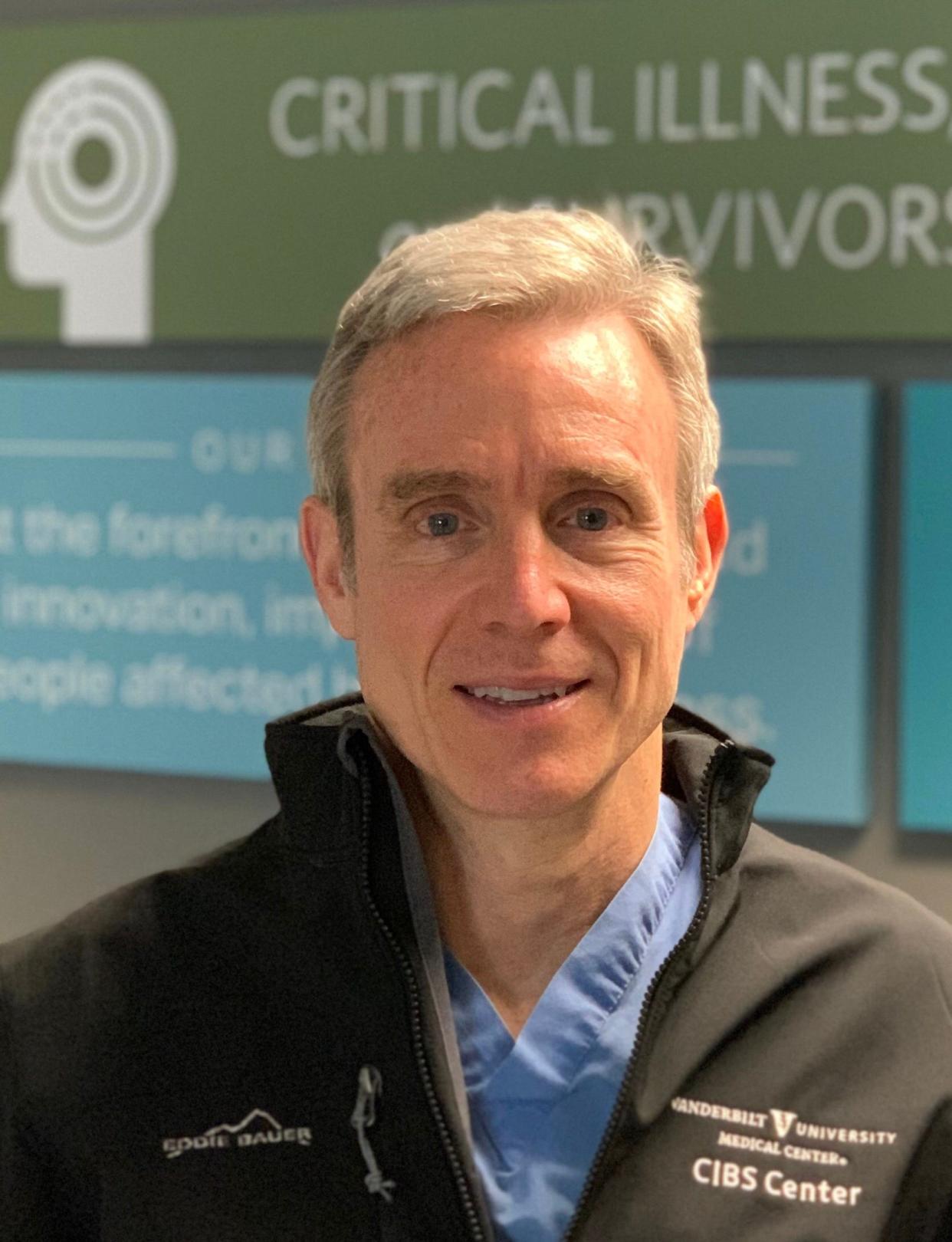As a doctor, I want patients, especially elderly ones, to have access to non-opioid drugs
When people think about victims of opioid addiction, senior citizens don’t usually come to mind. But in my practice as an intensive care unit (ICU) physician at Vanderbilt University Medical Center, I see it far too often.
Fortunately, there are new drugs being developed and legislation on the horizon that would provide non-opioid alternatives to seniors and others covered through Medicare and Medicaid plans.
To put this in context, here is what I’ve observed: Elderly patients admitted into the hospital suffering from numerous complications of what is nearly always inadvertent addiction to opioids.
By inadvertent, I mean that they were prescribed an opioid for pain, did as they were told, and had no idea they’d ever end up suffering from the disease of addiction, which, for the purposes of this conversation, we now call opioid use disorder. These medications cause profound abnormalities of the gastrointestinal tract, breathing difficulties, and a sequence of problems leading to infections, skin breakdown, and nutritional deficiencies (just to name a few).
Another view: Making safer opioid alternatives accessible will save lives
These are non-opioid solutions to chronic pain
Sitting firmly alongside these symptoms are the profound social and financial nightmares that thwart most attempts at recovery.

Nearly all my patients in such a situation ask us to help them find alternative solutions to their chronic pain. Thankfully, existing options include acetaminophen and anti-inflammatory medications like ibuprofen or steroids.
In addition, neuropathic and mood-altering medications like pregabalin, gabapentin, duloxetine, and venlafaxine sometimes help tremendously. Surgical options, including joint replacement and implantable spinal cord and peripheral nerve stimulators as well as minimally invasive procedures such as nerve ablation and the use of TENS units can be life changing though financially burdensome.
Other time-consuming (and sometimes expensive) aspects of chronic pain management include in-patient rehabilitation, 12-step programs, counseling, and cognitive behavioral therapy to develop coping mechanisms. Patients committed to such programs are usually unable to work and earn a living while in treatment.
By and large, however, we need to establish earlier and greater access to medications other than opioids for any type of pain that will be ongoing.
Pending FDA approval of non-opioid drugs is a game changer
That’s why I am encouraged by the prospects of the FDA approving new non-opioid drugs that could help millions of older Americans treat their pain without the addictive properties of opioids. To be sure, such efforts will help young and old people prevent and manage opioid addiction.
The development and FDA approval of non-opioid medications to treat serious pain represents a groundbreaking development in medicine, and it could be life changing for so many people struggling with both severe pain and addiction.
As a physician and researcher who works with elderly patients daily, I want them to have access to options that would relieve their chronic pain without the risk of addiction. But access is the key word here as it relates to these new drugs. For many seniors, access would mean having these promising new medications covered through their Medicare Part D plans. If they are not covered, many seniors would not be able to afford the out-of-pocket costs, and some physicians would be disincentivized from prescribing them rather than the cheaper, generic opioids.
For that reason, I fully support the bipartisan legislation recently introduced in Congress as the Alternatives to Prevent Addiction in the Nation (PAIN) Act. This legislation would ensure that the safer alternatives mentioned above are covered by Medicare so that older patients – who disproportionately suffer most from acute and chronic pain – are not priced out of benefiting from them.
Congress should follow Tennessee's lead on pain management
Here in Tennessee, the General Assembly recently passed similar legislation that would require our state-administered Medicaid program, TennCare, to include coverage of these new drugs for eligible low-income and disabled Tennesseans. The legislation, House Bill 2903 and Senate Bill 2011 (introduced by Rep. Sabi Kumar and Sen. Shane Reeves, respectively), is aimed at ensuring that these non-opioid pain medications are made as widely available as possible – and not just for those with the best insurance plans or the money to pay for them at cost.
Neither the proposals in Washington nor Nashville would restrict opioid availability for those who legitimately need them or tie the hands of physicians in prescribing them when appropriate. They would instead create valuable, lower-risk options for both doctors and patients.
As someone who sees patients in pain every day, I believe their suffering is real and needs to be addressed; however, when prescribing opioids in some cases, physicians risk being identified as over-prescribers. These alternative, non-opioid medications would give doctors options that would decrease this risk.
While our federal lawmakers continue to discuss this legislation, passing it seems like an imperative to me. We should take nothing off the table when it comes to measures that could reverse our state’s opioid epidemic.

Dr. Wes Ely is a professor of medicine and critical care at Vanderbilt University Medical Center and the Nashville VA, and the author of “Every Deep-Drawn Breath,” from which 100% net proceeds to go survivors of critical illness and Long COVID to help them pick up the pieces of their lives.
This article originally appeared on Nashville Tennessean: Pain medication: Make non-opioid drugs available to patients
